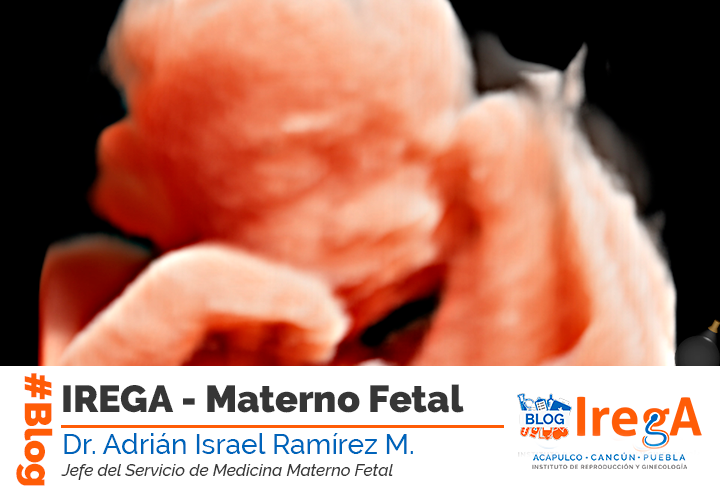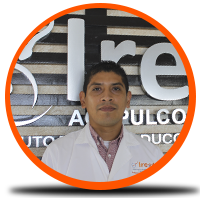
Maternal fetal medicine in IREGA.
In the area of Maternal Fetal Medicine, within its competences are Prenatal Diagnosis, which is the series of tests performed in utero in order to detect congenital defects or anomalies.
Through the use of non-invasive tests such as: ultrasound, biochemical studies in maternal blood and detection of small fractions of placental DNA also obtained in maternal blood.
They can be through the use of invasive tests (all of them guided by ultrasound): biopsy of the chorionic villi week 11-14 of gestation (removal of small fragments of the future placenta by vaginal or abdominal puncture), amniocentesis week 15-20 of gestation ( puncture of the womb to extract amniotic fluid and carry out genetic studies), cordocentesis, puncture of the umbilical cord to extract fetal blood for specific tests to detect abnormalities, syndromes, or detection of fetal anemia.
Another objective is the prediction of risks: of complications in pregnancy of the most frequent: pre-eclampsia (high pressure in pregnancy with involvement of another organ generating protein secretion in the urine or other manifestations in other organs of the body).
Alterations in the growth pattern of the fetus, called Intrauterine Growth Restriction estimating the weight of the baby and comparing it with pre-established growth tables according to gestational age, detecting those who are below an established weight range for gestational age, a Doppler study must be carried out to detect the repercussion that this alteration of growth has on the baby.
Prediction of risk of premature labor (the birth of the baby before the end of the pregnancy)
By ultrasound measuring the length of the cervix vaginally, and based on your history and history of previous pregnancies (if you have already had them).
On the other hand, the detection of certain anomalies, structural defects (malformations) in babies favors the timely reference to fetal therapy centers where some of them are susceptible to intrauterine treatment (that is, with the baby in the womb), or the scheduling of births in hospitals with the necessary technology and specialists to care for a newborn who is known to be born with a defect.
Finally, the monitoring and control of multiple pregnancies: twin and high-order fetal 3 babies or more, is another of the competences of the area of Maternal Fetal Medicine, given the complexity of these pregnancies and the potential risk of complications is important to be monitored by a trained specialist for timely detection and more appropriate resolution.
Surveillance of pregnant women with a chronic or newly diagnosed disease, diabetes, high blood pressure, or an autoimmune disease, transplant recipients, women on dialysis, carriers of congenital heart disease, HIV carriers, and they are pregnant, among others, ideally they should be watched by the Maternofetal service together with the specialist in order to deal with the disease that the patient carries. To monitor the pregnancy safety of the medications you use for your condition and adjustment of them always in conjunction with your doctor treating the chronic condition.
Nowadays, with new technologies and better resolution in ultrasound equipment and greater knowledge of disease behaviors in pregnant women, it is possible to improve the prognosis of pregnancies.

Dr. Adrián Israel Ramírez M.
Jefe del Servicio de Medicina Materno Fetal
Sigue a nuestro especialista en su página de Facebook : IREGA – Materno Fetal
.
